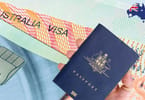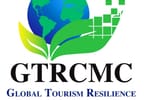Star Alliance acknowledges the relationship between two of their members is suffering from a recent spat between Lufthansa and Turkish Airlines that sees Lufthansa drop codeshares and mileage earning rates for all flights flown on Turkish Airlines. The alliance suggests it can be a platform to resolve the situation.
This is reported by APEX, the Airline Experience Assosication.
“I think I understand the frustration – you won’t get zero miles but you’ll get less than 100% of miles,” Star Alliance CEO Mark Schwab said at a CAPA – Centre for Aviation conference.
Lufthansa and group subsidiaries Austrian Airlines and Swiss will end a codeshare agreement with fellow Star carrier Turkish Airlines. Lufthansa will also change the frequent flyer status earn rate from 100% of award miles (calculated based on fare class) to 25%.
That will make earning elite status on Turkish flights more difficult. Although the two sides are not discussing details about the Lufthansa-instigated move, the industry places the conflict’s origin on Turkish’s rapid global expansion that is taking passengers from Lufthansa, especially in Germany where Turkish serves 12 cities. Lufthansa likely sees reduced elite status miles as a disincentive for its most loyal and thus high-spending passengers to fly Turkish.
Schwab was reserved about the situation, saying: “Right now I’d say it’s because there is a bilateral discussion going on between two carriers, and that has happened through the course of our history. It happens to be the one that’s most current.”
But it stands out to passengers given the size of the two carriers, the impact and the previous relations between the two; Lufthansa sponsored Turkish’s entry into Star and the two were recently exploring a deep partnership but called that off.
The situation underscores that passengers often think of global alliances as uniform blocs that compete with each other, but the reality is division and competition from within.
“There has always been competition within the alliances. Look at anyone of the three of them,” Schwab says. The result is that “there are commercial disputes that come up from time to time.”
Besides lowering fares, airlines can use frequent flyer programmes as leverage on passengers, as Delta Air Lines did earlier in 2013 when it cut all status miles on fellow SkyTeam carrier Korean Air to 0%.
“Each airline offers frequent flyer miles to their members in what’s competitive in that marketplace,” Schwab says. “Those programmes are designed to meet the needs of customers within the marketplaces. There are subtle differences.” This contrasts to a different approach Schwab says Star considered but ruled out: “There was a long time ago we decided we were not going to form one frequent flyer programme” for the entire alliance. Schwab says there are now about 20 frequent flyer programmes for the 28 members; a number of carriers use Lufthansa’s programme.
Going forward, Schwab sees Star being able to bring a resolution. He did not directly address the matter but said in general there are disputes “that need to get resolved within the alliance. Actually, I think because they’re within the alliance there is a better opportunity for resolution.”
As competition and resulting disputes increase, passengers may become more aware that global alliances were primarily created for airlines, not passengers. That raises the question if alliances can deliver on the much-promised seamless passenger experience.






















